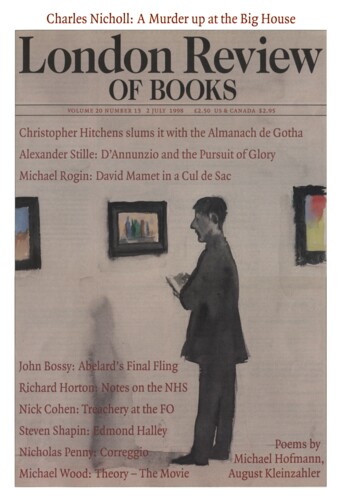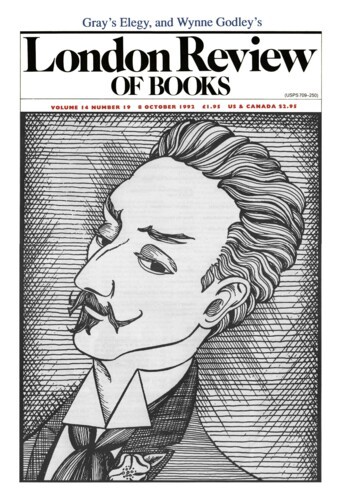A Revision of Expectations: Notes on the NHS
Richard Horton, 2 July 1998
On the evening of 10 March 1969, Richard Crossman, Harold Wilson’s new Secretary of State for Social Services (‘SSSS? Impossible!’ Crossman wrote in his diary), reached into one of his three ministerial red boxes to find a long report by a still rather obscure Conservative barrister. Geoffrey Howe had entered Parliament in 1964, only to lose his seat when Wilson increased Labour’s majority from four to 95 in 1966. Crossman’s predecessor, Kenneth Robinson, had appointed Howe to chair an inquiry into scandalous allegations, made in the News of thr World, of cruelty, torture and theft at Ely Hospital, a psychiatric institution near Cardiff. Howe’s final report had been submitted in September 1968, a month before Crossman took up his new portfolio. The Ministry had by then spent six months arguing that Howe’s explosive eighty thousand words should remain confidential; only a brief summary would be published. ‘Not on your life,’ Howe had said, according to Crossman’s diary. Eventually, with three drafts – complete, slightly curtailed and concise – in his red box, Crossman had two days to approve publication of the concise version.’‘



